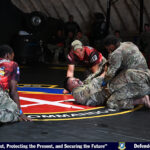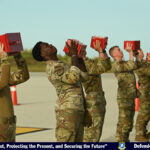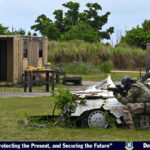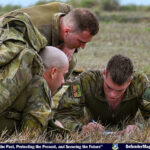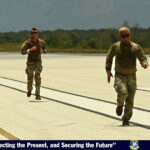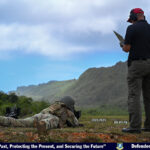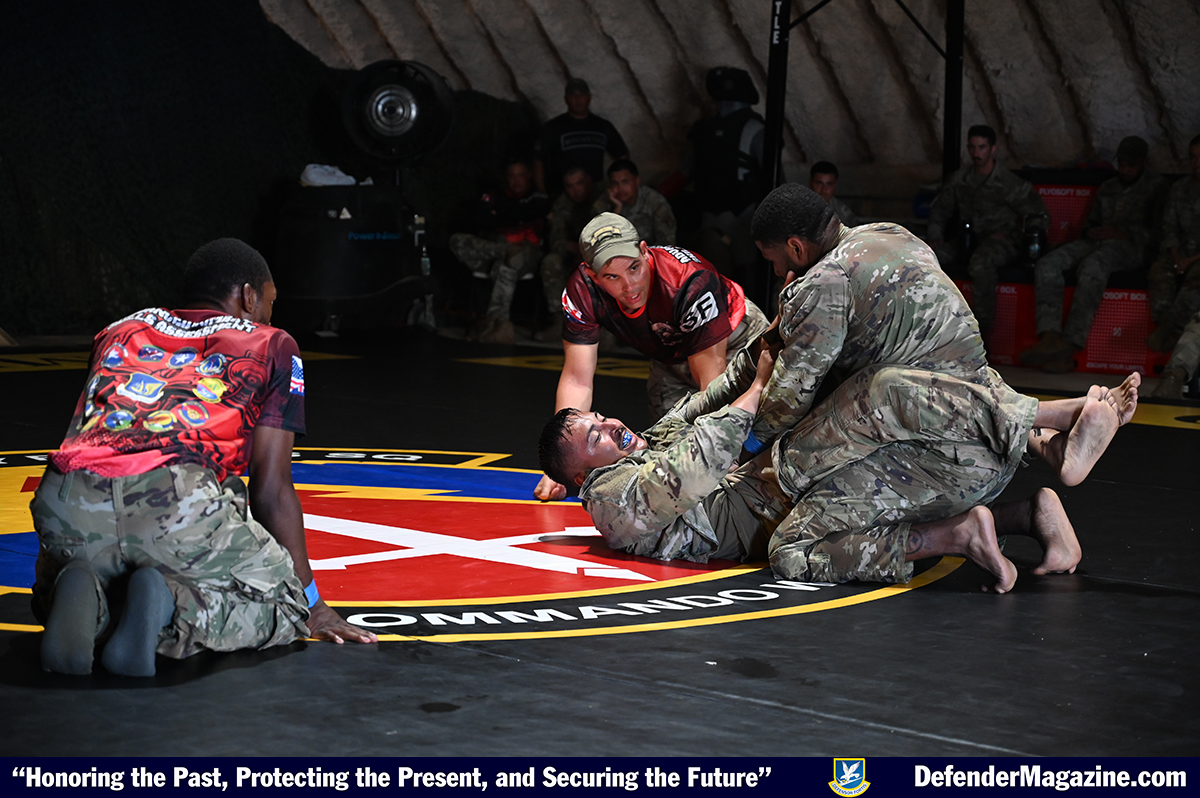
ANDERSEN AIR FORCE BASE, Guam — Defenders from Security Forces Squadrons across the Pacific Air Force and service members from allied nations put their physical training, unit pride, and individual tenacity to the test in an endeavor to be hailed champion of the 7th Annual Advanced Combat Skills Assessment Competition.
Fifteen teams of five competed in four, carefully designed, combat-simulated competitions orchestrated by PACAF, between May 20-24, at the Pacific Regional Training Center-Andersen, Guam.
Each team cohesively exhausted their efforts in the Combat Fitness Assessment, Combatives Assessment, Weapons Challenge, and Combat Tactics, Endurance, and Agility Assessment.
“We always try to build on lessons learned from previous years,” said Master Sgt. Christopher Moore, 2024 ACSA event lead.
Moore said that since 2013, the Air Force’s demand to prioritize combatives grew, which ultimately led to a shift in the design of the ACSA competition. Previously, the best fighter from each team was chosen to compete in the CFA. This year, every team member was on the mat.
The competition is taken seriously across PACAF with training permitted to begin no sooner than 30 days prior to the event, said Moore. Each unit has their own selection process, whether they conspire through tryouts or nomination. In some instances, when manning allows, participants are relieved from their duties to dedicate time to training.
The 2024 ACSA Champion team appeared to have wasted no time in training, taking home top performing titles in two of the four events. However, their trophies did not have to travel far as the winning team represented the 736th SFS from Andersen AFB, Guam.
Placing second in overall performance was the 673rd SFS from Joint Base Elmendorf-Richardson, Alaska. In third was the 18th SFS from Kadena, Japan.
International participation from the Royal Air Force, Royal Australian Air Force, and Japan Air Self-Defense Force made this year’s competition the largest and most unique.
“PACAF has always been about interoperability and integration with our allies and partner nations,” said Moore. “Interoperability and integration forges good bonds and good partnerships.”
The Royal Thai Air Force made a special appearance and showed interest in participating in next year’s competition. PACAF jovially hosted their representatives and even had them unofficially participate in the events as a trial.
Not only does this competition assess the Airmen’s capabilities, promote morale, and foster relationships, it brings key leadership in the region together for centralized, face-to-face communication.
“It’s one week to talk, formally and informally, as a MAJCOM,” said Darren Ohashi, Chief, Integrated Defense, Future Operations, PACAF. “We build relationships face-to-face that you cannot get via email or paperwork since PACAF is so spread out.”
Ohashi has been at the forefront of planning for all seven competitions and as a retired Defender himself, emphasizes the cruciality of investment in Security Forces across the Air Force.
“We fly planes as our primary mission, but if we can’t protect the airfield, planes don’t fly,” said Ohashi. “We need to be ready.”
Defenders across PACAF and our allied nations have unwavering motivation to stay ready, not just for the mission but for the chance to be an ACSA Champion.
- Published
- By Airman 1st Class Natasha Ninete
- 36th Wing
